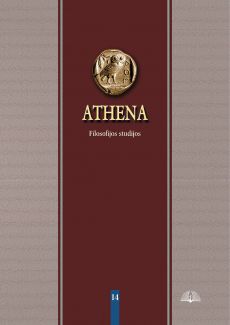DELEUZE’O IR GUATTARI GEOFILOSOFIJA PRIEŠ ANTROPOCENĄ
DELEUZE AND GUATTARI’S GEOPHILOSOPHY AGAINST THE ANTHROPOCENE
Author(s): Sigita DackevičiūtėSubject(s): Politics / Political Sciences, Contemporary Philosophy, Structuralism and Post-Structuralism
Published by: Lietuvos kultūros tyrimų
Keywords: Anthropocene; Deleuze; Guattari; geophilosophy; art as becoming;
Summary/Abstract: The term ‘Anthropocene’, which emerged in the general context of anti-anthropocentric tendencies, has been criticized for its universalization of the subject, for considering human as superior to other species, as well as for its appreciation of geoingeneering solutions to the problems associated with climate change. The article highlights the relevance of the philosophy of Gilles Deleuze and Félix Guatari in the context of these tensions caused by the term ‘Anthropocene’. The Geophilosophy of Deleuze and Guatari proposes a concept of nature which includes dynamic system of layers with transversal interconnections. This system challenges the anthropocentric “hierarchy” of nature. Their theory of artistic becomings connects to specific material bio- or geo- situations and in this way acts against both the universalization of the Anthropocene subject and the universalized visuality of the Anthropocene. The article also discusses art installations created by Olafur Eliasson and Lara Almarcegui which engage in a specific relationship with matter and in this way act against the universalized visuality of the Anthropocene.
Journal: Athena: filosofijos studijos
- Issue Year: 2019
- Issue No: 14
- Page Range: 187-203
- Page Count: 17
- Language: Lithuanian

